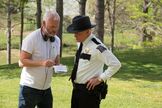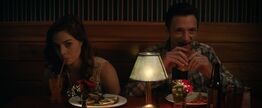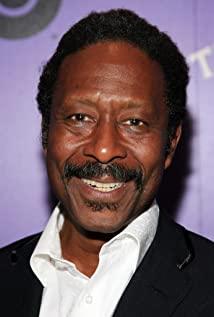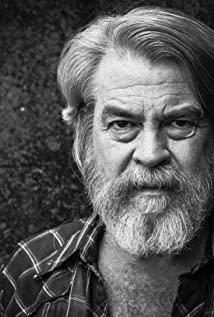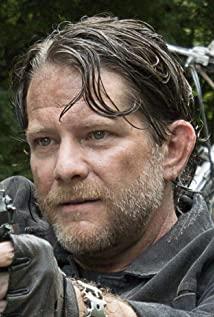I am interested in a suicidal Christian figure, someone who is willing to sacrifice himself for others.
I've always been interested in a suicidal Christ figure. Somebody who kills himself for the sake of others.
—Martin Mcdonagh, 1998
(involves part of the plot)
Karma cause and effect
In the world Mcdonagh created, sinners are often punished for their own karma through ingenious karma. But his seemingly black and violent world has bright and warm revelation - if you have good intentions and know how to repent and remedy, you can get redemption and reconciliation.
Whether in the trailer or at the beginning of the movie, Mildred, who suffered the pain of his daughter's rape and murder, is a heroine who is sympathized with. But she actually committed the karma of cursing her daughter's rape and murder, pointing the finger at Sheriff William, which has elements of evasion and diversion, and also admitted that the purpose of setting up billboards is to gain attention, which is recommended by all guide books ("it's in all the guidebooks”). Even if the sheriff wasn't dereliction of duty and was dying, she was unmoved. And her husband who raped her and abandoned her partly caused her anger at her daughter and others around her (the dwarf said she never laughed at others).
Dixon, who bullied blacks and gays, got his revenge on fire. Dixon's anger stems from his incompatibility with passive change (Black lives matter now), unhappiness in life (independent caring for his mother) and repressed self-identity (homosexuality). When the only eldest brother who understood him left, anger was the only way he knew how to vent.
The gay brother Red committed greed (suddenly asked Mildred to pay back one month's money), and the retribution was to be beaten half to death and thrown downstairs. But it's also thanks to him -- and the deep goodness of the above characters -- that the chain of evil and anger is kept from going on forever. At the same time, there is an important person who awakens the hearts of others and has a godlike light - William, which is what Mcdonagh calls a Christian figure.
William himself suffered from pain, but it did not bring him anger. In fact, he handled the case with all his heart; even if he was trampled on the head, he did not use public power to bully Mildred or order her to remove the card; when he talked to Mildred at the police station and was sent to the hospital for bleeding, he did not forget to tell her not to embarrass her on the stretcher; Also sent advertising fees with a sense of humor. Treating Dixon, I can see that he has low self-esteem because of his homosexuality and suffers from life pressure, but his heart is warm and kind. William's departure (located in a religious place like the stables), and the two oracle-like letters, relieved Mildred a little, and let Dixon no longer be blinded by hatred. In the end, the two redeem each other.
In Bruges also has a character Ken with a similar function. Ken saw the remorse in Ray's heart and hoped to give him a chance to make amends and make amends. The appearance of the final leap from the bell tower, a living Christ-like sacrifice. The two works share many similar motifs.
religion, or anti-religion
If it is said that this is a work with religious connotations, it may be disapproving. Indeed, Mildred also has a line mocking the priest's pedophilia. When watching the movie, I felt that this long talk was a little bit out of tune with the plot and characters. However, looking back at Mcdonagh's interview back in 1998, he mentioned that the incident of priest sexual abuse that broke out in his hometown Ireland has always haunted him. There's also a line about child abuse in In Bruges ( just embedded more naturally: "What is Belgium best known for? Chocolate and child abuse. Chocolate was invented to trick children" ). Perhaps, this is the issue he always wanted to speak out about.
Raised in a Catholic school, Mcdonagh admits to being anti-Catholic, but his writing is always filled with discussions of faith—only in the form of non-establishment religions and their dogmas. He chose to use Ken and William as a metaphor for the savior, one was a killer, the other was open-mouthed fcuk; while the priest, who was dressed in uniform and sanctimonious, was sprayed with disgrace. His "redeemeds"—In Bruges' killer Ray, Three Billboards' village woman Mildred, and red-necked Dixon—seem vulgar, uneducated, politically incorrect, and unbelieving at first glance, but they still have kindness and remorse at heart. , and make changes. Ray's conscience is disturbed because of the manslaughter, and he constantly reflects on himself and even attempts to commit suicide; Mildred makes up for it by persevering in pursuit of the real murderer; Dixon is beaten violently and wants to grab a handful of the suspect's DNA; Red sees Dixon's apology, in order to mutilate his own This bad guy handed the juice... These are more important and valuable essences than labels such as social status, education level, sexual orientation, etc.
For example, rather than easily dismissing Dixon as a "red neck for Trump", empathizing with his helpless reality and seeing his kindness may be able to defuse his anger. William's three recipes in his letter: Love, Calmness and Thinking apply to any alignment. It's just that many times, people can only be awakened after experiencing the raging purgatory violence and injury.
Good people are hard to find
At the beginning of the movie, Red is reading Flannery O'Connor's "A good man is hard to find." O'Connor's story is also known as a black thriller, but she is actually a devout Catholic who wants to reveal through the horror how human nature needs to be constantly correctly guided and redeemed. Martin Mcdonagh is a lot warmer than O'Connor. After all, in this era, it is very rare to have the moral sense and introspection of "the way of heaven must be reincarnated".
View more about Three Billboards Outside Ebbing, Missouri reviews



